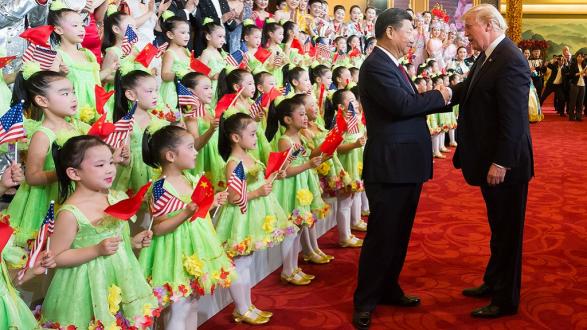In the last few weeks, the Trump administration has unleashed what may be the initial salvo in a mutually destructive trade war with China.
In succession, it self-initiated a trade case for the first time in over 25 years to fight cheap Chinese aluminum imports, very publicly rejected China’s position that it should lawfully be considered a "market economy" in such cases, and apparently suspended the main official U.S.-China dialogue to bolster economic ties. Now its new national security strategy identifies China as a "strategic competitor" and decries it and Russia as "revisionist powers."
These signs of the White House’s growing impatience with China after months of stalemate on commercial and trade issues may be just the tip of the iceberg: the administration’s major investigation of China’s intellectual property practices appears to be winding down, and could result in a range of unilateral sanctions.
The administration’s paradigm shift likely reflects the results of a reportedly completed, soup-to-nuts review of China policy focused on a growing litany of U.S. economic concerns: uneven intellectual property protection, forced technology transfers, invasive cybersecurity requirements, acquisitions of U.S. technologies critical to national security, and other discriminatory practices limiting U.S. companies’ access to the world’s largest market.
The White House’s stock-taking is timely in light of clear signs that China is increasingly straying from a market-oriented path of reform and doubling down on the state-directed industrial policies of the governing Communist Party. It can be beneficial to the extent it resolves internal administration disagreements and clarifies the confusing messages being sent to Beijing.
Read the full article at The Diplomat.
_______________________
Atman Trivedi is a managing director at Hills & Company, International Consultants, where he advises global companies on trade, investment, and political issues with a focus on Asia.
The views and opinions expressed here are those of the author and do not necessarily reflect the official policy or position of the Pacific Council.




